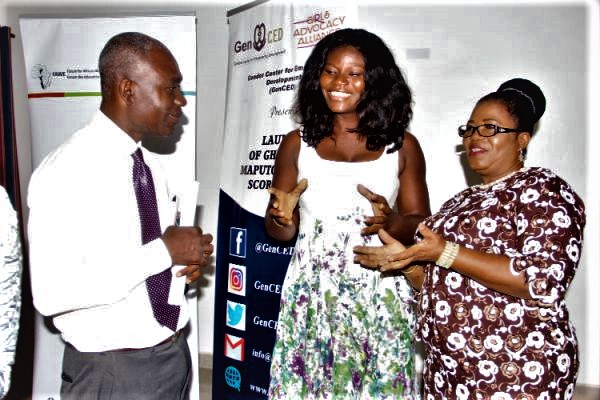
Scorecard on Maputo Protocol launched
In recognition of the socio-economic cost of the marginalisation of women, African leaders in 2003 put in place a number of legal provisions to promote and protect the rights of women in Africa.
One of such instruments is the African Charter on Human and Peoples' Rights on the Rights of Women in Africa, popularly known as the Maputo Protocol, which was promulgated in 2003.
In February 2007, Ghana ratified the Protocol and Articles four, six, 12 and 13 of the Protocol enjoins state parties to work to eliminate gender-based violence (GBV) and promote economic empowerment of women.
A decade and half on and in line with its reporting obligations under the Maputo Protocol, civil society organisations (CSOs) in Ghana have, for the first time, produced a scorecard to be presented to the Committee on the Protocol to the African Charter on Human and Peoples’ Rights on the Rights of Women in Africa.
The report will come across as Ghana’s shadow report on articles four and 13 of the Maputo Protocol.
Article four of the Protocol is on the Rights to Life, Integrity and Security of the Person; article 13 focuses on the Economic and Social Welfare Rights.
Scorecard
The Maputo Protocol scorecard is an effective monitoring system for national governments to honour their human rights responsibilities to women and girls who are some of the most vulnerable groups.
The Ghana shadow scorecard was led by the Gender Centre for Empowering Development (GenCED), a non-governmental organisation that seeks to empower women and the youth for sustainable development in communities under its Girls Advocacy Alliance, with support from the Plan International Africa Liaison Office and the Forum for African Women Educationists (FAWE).
At the launch of the scorecard in Accra on Wednesday, the Director of the Department of Gender at the Ministry of Gender, Children and Social Protection, Dr Mrs Comfort Asare, said the scorecard was for the country to assess itself in the areas of women empowerment and GBV.
“We see change but not what we want to see. We have done a lot, but we still need to do more if we want to get to where we want to be”, she added.
Dr Mrs Asare was of the view that the bane of women’s advancement in the country had a lot to do with culture and said there was the need for more education and sensitisation, “else we will still report low marks”.
Support
In an address, Ms Sarah Tabit of the African Union Liaison Office of Plan International, said the organisation was mindful that any situation that prevented girls from effectively learning, leading, deciding and thriving within a protective environment, would continue to worsen their plight.
She said the economic, social and political empowerment of girls and young women remained a central priority of the continent in achieving the Sustainable Development Goals (SDGs).
Ms Juliet Kimotha of FAWE commended the GenCED for undertaking the research on the scorecard. She said so far, 41 countries had ratified the protocol, while 14 were yet to do so.
Mr Frank Bodza, Programmes Manager, WiLDAF-Ghana, who gave an overview of the scorecard said the country had good laws, but the issue was monetary and other logistical constraints.
The scorecard scored Ghana zero in many areas, including “How sexual harassment is handled in public institutions” and “How many women have been rehabilitated due to gender-based violence.”
It recommended, among other things, the need to recognise unpaid care work, advocated the reactivation of the informal sector fund and fair taxes for informal women in the various districts, as well as advocacy for equal pay for equal work in the private sector.
Writer's
